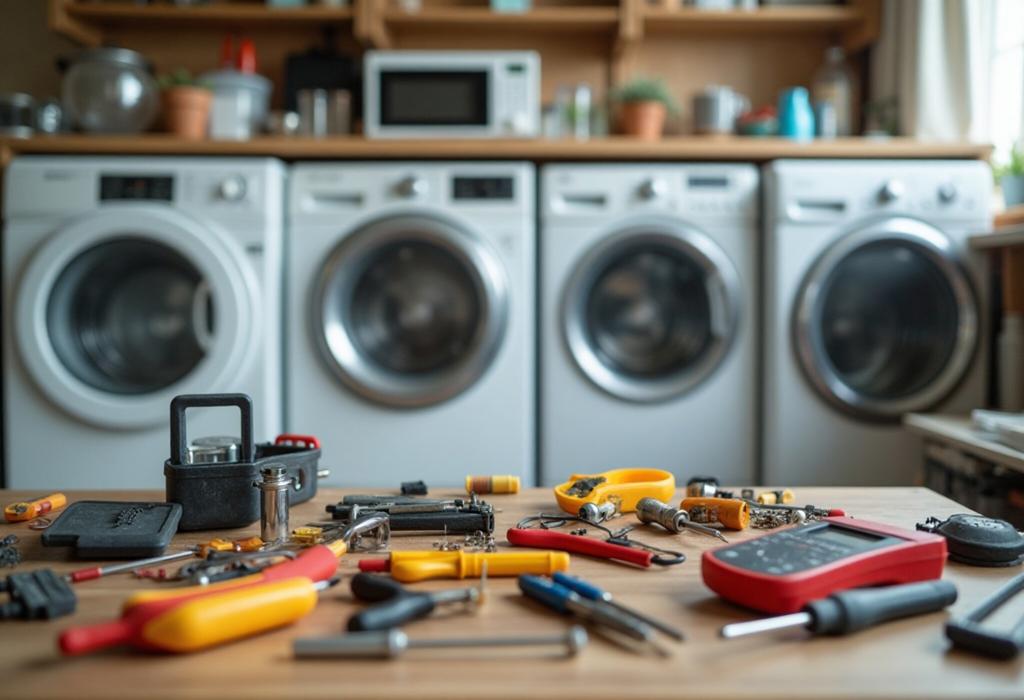For more details on this content, please review the step-by-step guide and frequently asked questions.
How To Repair Common Household Appliances

Step-by-Step Guide
Understand Appliance Basics
Before you begin repairing appliances, familiarize yourself with how common household appliances work. This includes understanding electrical systems, motor functions, and basic components such as fuses, switches, and circuit boards.
Safety First
Always prioritize safety when working with electrical appliances. Unplug the appliance before starting any repairs, and use safety gear such as gloves and goggles. Be aware of potential hazards like sharp edges and hot components.
Gather Necessary Tools
Collect essential tools needed for appliance repair, including screwdrivers, wrenches, multimeters, pliers, and a flashlight. Having the right tools will make the repair process smoother.
Identify the Problem
Start by identifying the symptoms of the appliance malfunction. Is it making strange noises? Not turning on? Leaking? Understanding the problem is crucial for effective diagnosis.
Consult the User Manual
Refer to the user manual for troubleshooting tips specific to your appliance model. Manuals often include diagrams that can help you understand internal structures and parts.
Common Appliance Repairs
Learn how to conduct common repairs for popular household appliances: - **Washing Machine**: Check hoses for leaks, inspect the door latch, and test the motor function. Replace worn-out belts as needed. - **Refrigerator**: Clean the coils, check the thermostat settings, and examine the door seals for leaks. - **Microwave**: Test the door switch, clean the interior, and replace the faulty magnetron if the microwave does not heat. - **Oven**: Check the heating element, inspect the thermostat, and ensure the oven door seals properly.
Testing After Repairs
Once repairs are completed, test the appliance to ensure it is functioning correctly. Run a short cycle for washing machines or an empty heat cycle for ovens to confirm repairs.
Regular Maintenance Tips
Prevent future breakdowns by conducting regular maintenance. For example, clean filters, keep appliances dry, and check for wear and tear periodically. Proper care can extend the lifespan of your appliances.
Know When to Call a Professional
While many repairs can be done at home, it's important to know when to call a professional, especially for complicated electrical issues or if the appliance is under warranty.
Stay Updated on Appliance Technology
Appliance technology is constantly evolving. Stay informed about new appliances, features, and repair techniques to be better prepared for future repair needs.








